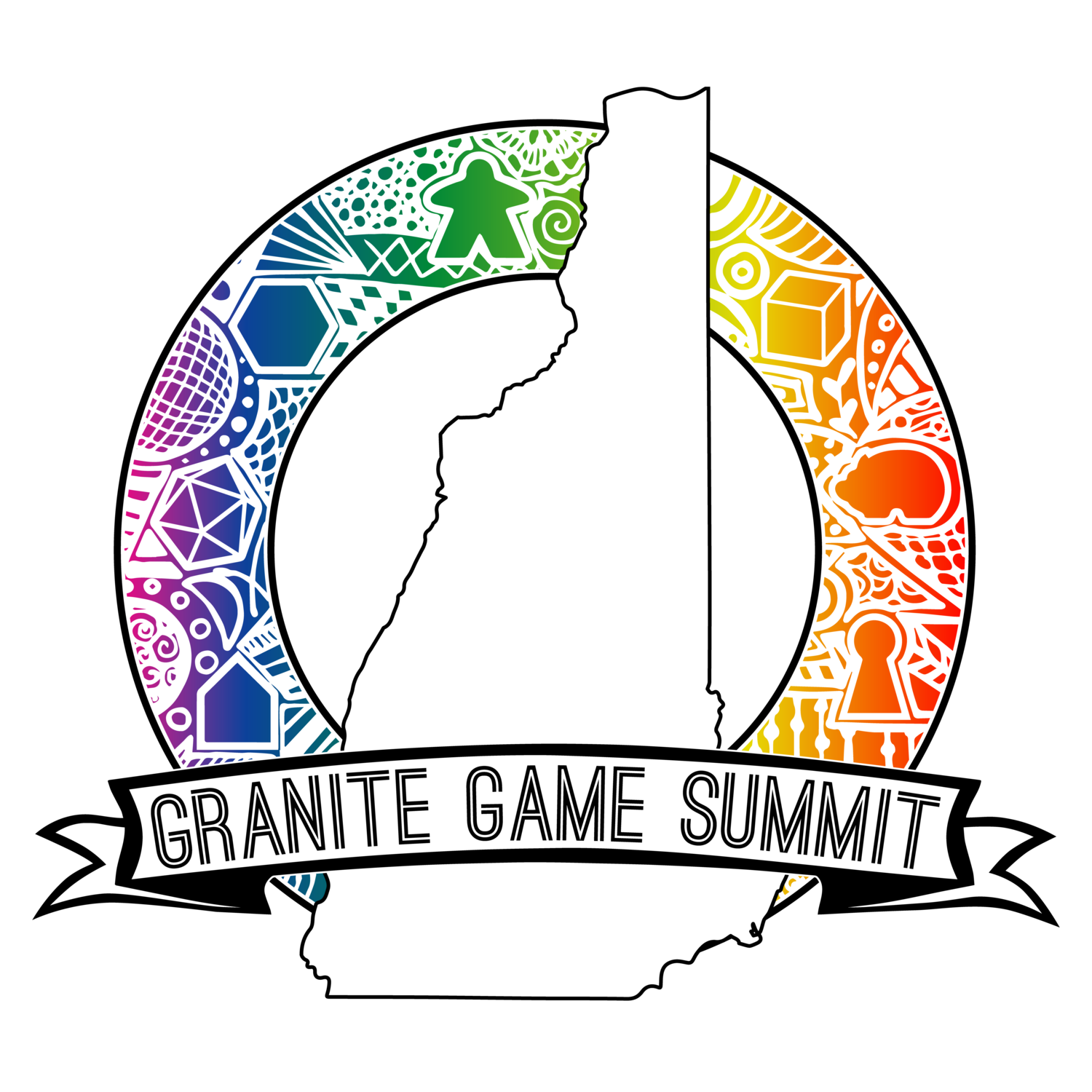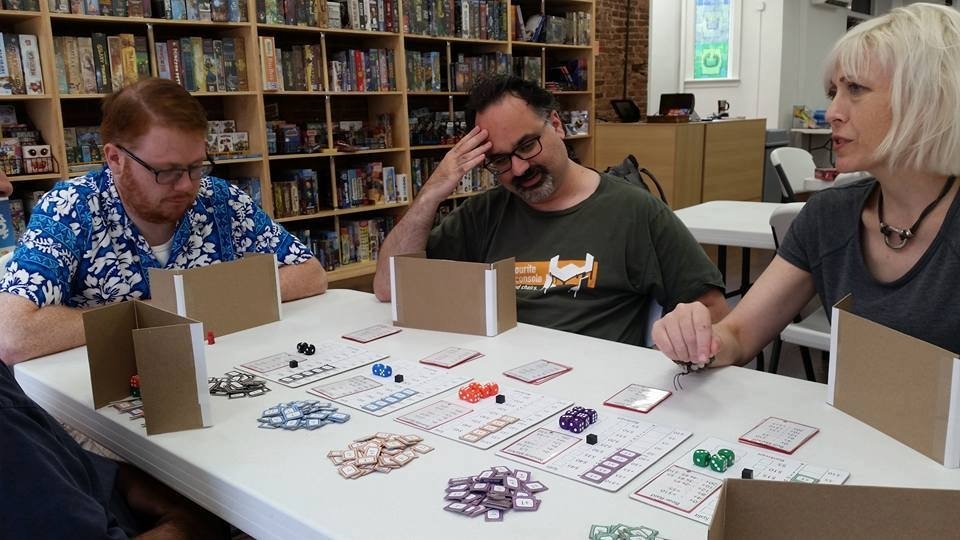Ryan Courtney
Today we are featuring Ryan Courtney. Ryan’s first published game Pipeline is being published by Capstone Games in the summer of 2018. Ryan was a jock. Became a nerd. He is a graduate student residing in NYC. Fascinated by complex systems, he started creating simpler systems, games, that were better suited for his simple mind.
THREE RANDOM FACTS ABOUT RYAN:
Reading is by far his favorite thing to do. Non-fiction only though.
Ryan was recruited to be a professional wrestler. He can’t imagine what that life path would’ve looked like.
Fun is the last thing to cross Ryan’s mind when coming up with designs. He is sure many would say that it shows.
Questions by Kimberly Revia (KR), answers by Ryan Courtney (RC).
THREE BOARD GAME DESIGN RELATED QUESTIONS:
KR: How did you initially get interested in designing board games?
RC: I started toying around with using various hardware in unique ways in the digital games space. Some of these projects were hybrids between the physical and digital space. I was also making paper prototypes of other digital games I was working on and testing them at my local tabletop playtest meetup. At some point I just decided to try my hand at a tabletop game. Design provided me with a level of challenge I wasn’t getting from playing.
KR: What tools do you use to playtest your games?
RC:
All early designs are brought to local playtest meetups. Basically used as a sanity check to see if the experience I believe I’ve created in my head matches reality.
Once a game is a bit more stable, I’ll implement a digital version of it to be playtested online. This implementation may be as simple as drag and drop to recording a variety of data like timing, moves, etc. This is where a bulk of the actual playtesting occurs.
I’ve been quite fortunate especially for a beginner designer to have people ask to run playtests themselves so I also try to make PnP files when possible.
A majority of the iterating through designs occurs away from the table. I am constantly running games through my head and if that doesn’t suffice I’ll program simulations.
KR: Heavy games are a smaller part of the market than most hobby games. Do you think the process of designing to being published is different for them?
RC: To be honest, I do not set out to create “heavy” games. I simply try to make games that have interesting and meaningful decisions starting from turn one. Coincidentally, a majority of my time developing a game is spent trying to minimize elements traditionally associated with heaviness: length, rules overhead, complexity, inaccessibility, etc.
As far as being published, I think you just have to do your research. Most publishers have no interest in producing a game in the heavy space but there are several boutique publishers that have built their brand around these types of titles. There are fewer publishers who do heavy games but it also seems like there are fewer designers in this space as well so I don’t think it’s necessarily any more difficult to get published. The biggest issue I find is getting enough local playtesters which makes online playtesting a necessity.
THREE QUESTIONS JUST FOR FUN:
KR: What is your favorite part thing about board game conventions?
RC: Enjoyable to see people passionate about what they do.
KR: Is there one game you think is underrated and deserves more attention?
RC: Faeria. It has its flaws but I feel like it should be more successful.
KR: Do you have a favorite snack for travelling and being on the go?
RC: I should definitely eat healthier and encourage others to do so as well but I eat an excessive amount of beef jerky when travelling.





